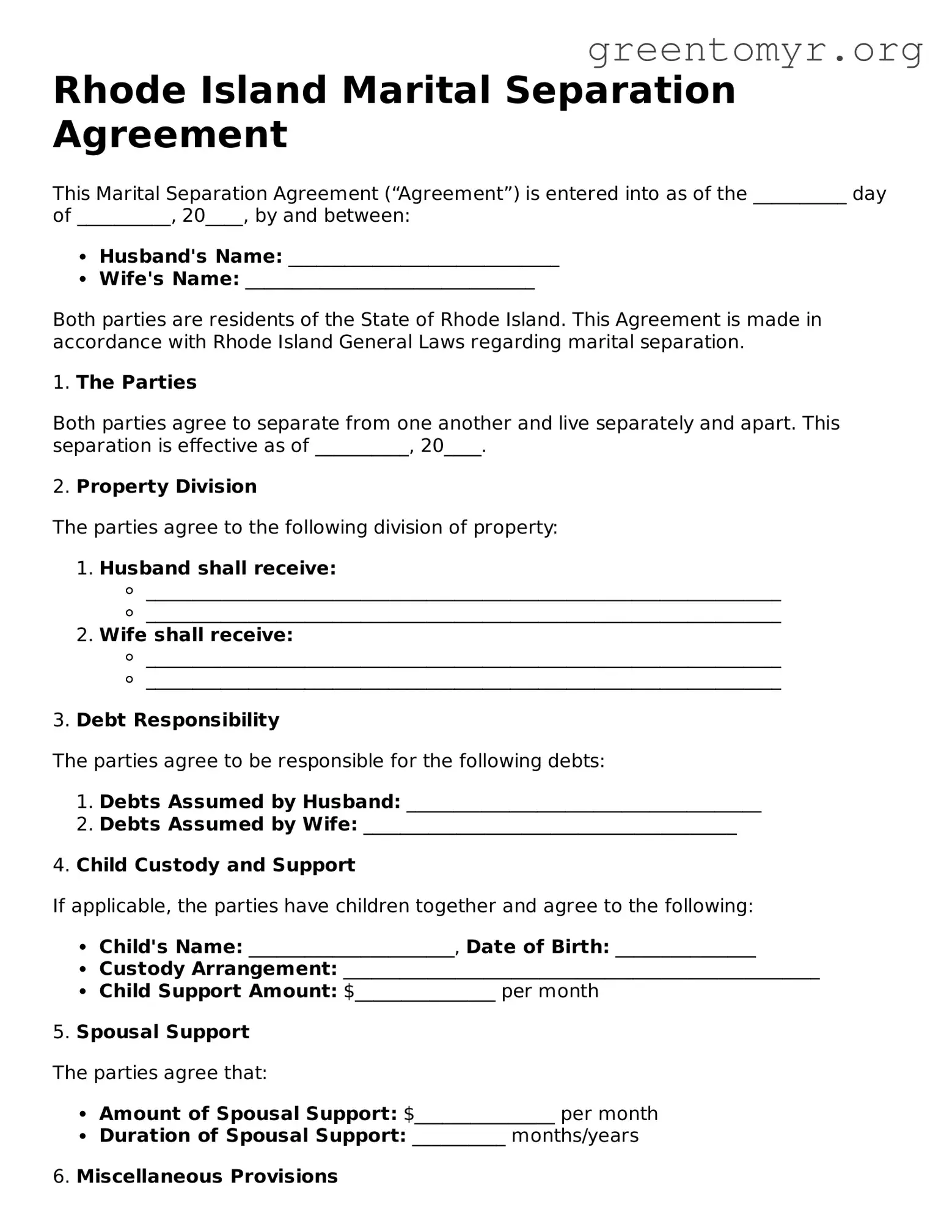Rhode Island Marital Separation Agreement
This Marital Separation Agreement (“Agreement”) is entered into as of the __________ day of __________, 20____, by and between:
- Husband's Name: _____________________________
- Wife's Name: _______________________________
Both parties are residents of the State of Rhode Island. This Agreement is made in accordance with Rhode Island General Laws regarding marital separation.
1. The Parties
Both parties agree to separate from one another and live separately and apart. This separation is effective as of __________, 20____.
2. Property Division
The parties agree to the following division of property:
- Husband shall receive:
- ____________________________________________________________________
- ____________________________________________________________________
- Wife shall receive:
- ____________________________________________________________________
- ____________________________________________________________________
3. Debt Responsibility
The parties agree to be responsible for the following debts:
- Debts Assumed by Husband: ______________________________________
- Debts Assumed by Wife: ________________________________________
4. Child Custody and Support
If applicable, the parties have children together and agree to the following:
- Child's Name: ______________________, Date of Birth: _______________
- Custody Arrangement: ___________________________________________________
- Child Support Amount: $_______________ per month
5. Spousal Support
The parties agree that:
- Amount of Spousal Support: $_______________ per month
- Duration of Spousal Support: __________ months/years
6. Miscellaneous Provisions
The parties agree on the following additional terms:
- _____________________________________________________________________
- _____________________________________________________________________
7. Entire Agreement
This document constitutes the entire agreement between the parties regarding their marital separation. It supersedes all prior negotiations, agreements, or understandings.
IN WITNESS WHEREOF, the parties have executed this Marital Separation Agreement as of the date first above written.
Husband's Signature: ________________________________
Date: ________________
Wife's Signature: _________________________________
Date: ________________
